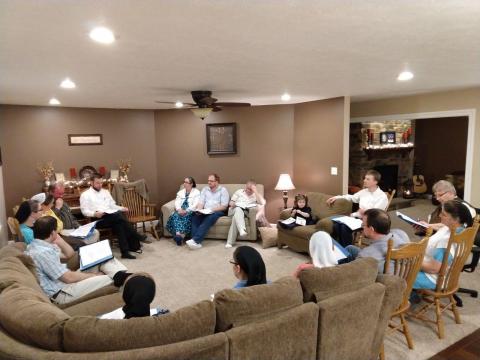Last week we enjoyed meeting with the Berea congregation in northern Indiana. Though none of us knew it three years ago, when they agreed to send Sister A. to work in Bible translation, they opened themselves to supporting ABT’s likely first literacy consultant. Our encounter with this sending church focused on their work as her senders. Our additional meeting with A. focused on her initial ideas for literacy work among ABT teams.
The question we face is this: Why translate the Bible if no one can read it? And further, how effective will a translated Bible be if most struggle to read at all and few see value in making the effort?
A good literacy program addresses all of these questions with very practical answers. Thankfully, we can learn from the years of work and research by many others. A. has already invested many hours, miles, and even sweat and tears, into pulling from these resources. Kind Literacy leaders at Ethnos360 have shared their time, knowledge, and expertise.
Yet making literate societies out of oral societies is a lot of work. Is it that important that people learn to read?
The Scripture translated brings God’s Word into their language (the first leg of the stool). The Scripture taught, if well done, brings God’s Word into their context (the second leg of the stool). But without Literacy, we end up with a very tippy two-legged stool.
The Scripture read brings God’s Word into their reach. That’s the third leg of the stool. Without a well-developed ability to read, even with Scripture translation and teaching, the people remain dependent on others to read or tell God’s Word to them. But the fully literate person can benefit from carrying the Bible with him anywhere, referring to it anytime, and searching the Scriptures about any question.
Literacy is important because it helps make possible a living, growing, maturing church. Like translation, literacy serves as a means toward that end.

